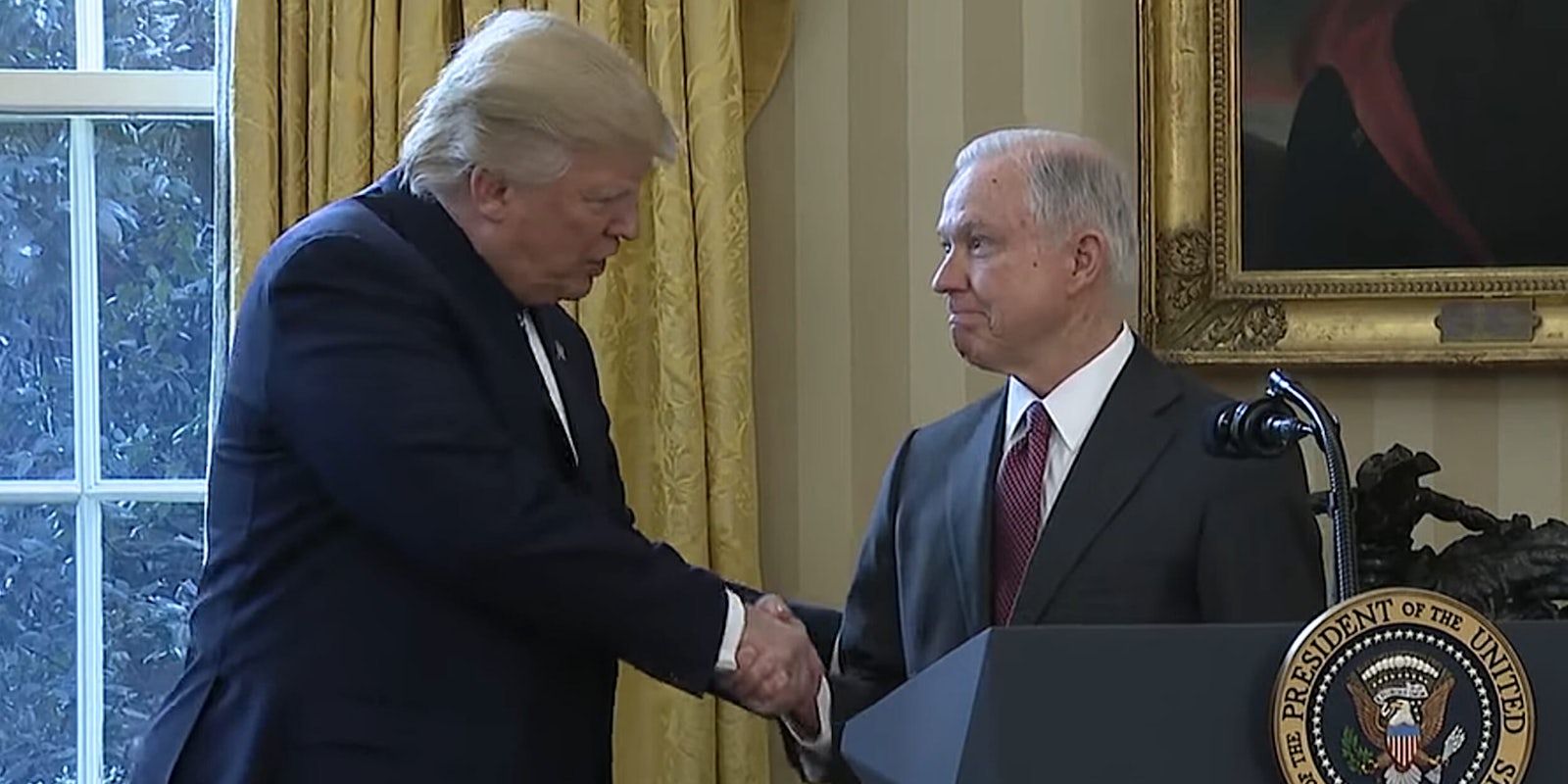A new report by the New York Times includes shocking details about how President Donald Trump had hoped Attorney General Jeff Sessions would not recuse himself from the FBI’s Russia investigation so that Sessions could protect the president.
As the report rolled through Capitol Hill, at least one senator, Richard Blumenthal (D-Conn.), called it clear evidence of obstruction of justice.
Explosive evidence of obstruction – and imminent danger to Special Counsel. White House Staff need to testify before grand jury. https://t.co/8ekaT2Ev6M
— Richard Blumenthal (@SenBlumenthal) January 5, 2018
Threat of AG Sessions firing as means to shut down Mueller. Republican colleagues must sound the alarm and support bipartisan legislation protecting Special Counsel.
— Richard Blumenthal (@SenBlumenthal) January 5, 2018
The report includes several shocking claims about Trump’s behavior in the lead-up to FBI Director James Comey‘s dismissal, the catalyst for the appointment of Special Counsel Robert Mueller.
Trump, it’s reported, raged at Sessions for not protecting him from the investigation, and tried to stop him from recusing himself even after news broke that Sessions possibly lied about contacts with the Russian ambassador.
President Trump gave firm instructions in March to the White House’s top lawyer: stop the attorney general, Jeff Sessions, from recusing himself in the Justice Department’s investigation into whether Mr. Trump’s associates had helped a Russian campaign to disrupt the 2016 election.
Trump dispatched his White House counsel, Donald F. McGahn II, to tell Sessions he wanted the attorney general to stay in charge of the inquiry.
Mr. McGahn was unsuccessful, and the president erupted in anger in front of numerous White House officials, saying he needed his attorney general to protect him. Mr. Trump said he had expected his top law enforcement official to safeguard him the way he believed Robert F. Kennedy, as attorney general, had done for his brother John F. Kennedy and Eric H. Holder Jr. had for Barack Obama.
In an unrelated interview with the Times last week, Trump railed against Holder, the attorney general under Obama, for supposedly keeping several scandals from landing on the White House, including trading “guns for whatever.”
After Sessions refused to recuse himself, Trump’s ire turned to Comey, who he believed was conducting a “fabricated and politically motivated” investigation. Trump even originally included those terms in a letter he was planning to send to Comey, but was dissuaded by White House aides, who waged a constant battle against the president on the matter.
The special counsel has received handwritten notes from Mr. Trump’s former chief of staff, Reince Priebus, showing that Mr. Trump talked to Mr. Priebus about how he had called Mr. Comey to urge him to say publicly that he was not under investigation. The president’s determination to fire Mr. Comey even led one White House lawyer to take the extraordinary step of misleading Mr. Trump about whether he had the authority to remove him.
During that time, a member of Sessions staff attempted to dig up dirt on Comey, a claim that the Attorney General’s office vehemently denied.
The New York Times has also learned that four days before Mr. Comey was fired, one of Mr. Sessions’s aides asked a congressional staff member whether he had damaging information about Mr. Comey, part of an apparent effort to undermine the F.B.I. director.
Whether Trump’s behavior is tantamount to obstruction of justice—despite the clamoring online—is a matter of debate.
[It] could be difficult to prove that the president, who has broad authority over the executive branch, including the hiring and firing of officials, had corrupt intentions when he took actions like ousting the F.B.I. director.
Ever since the episode though, Trump has had a tortured public relationship with Sessions.
Read the whole Times report here.


